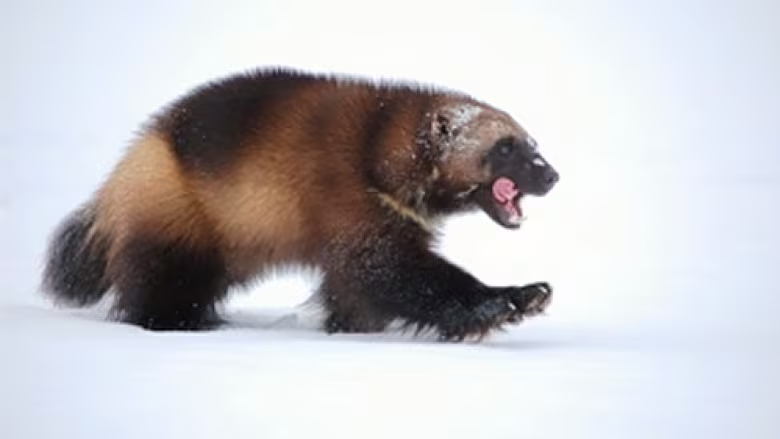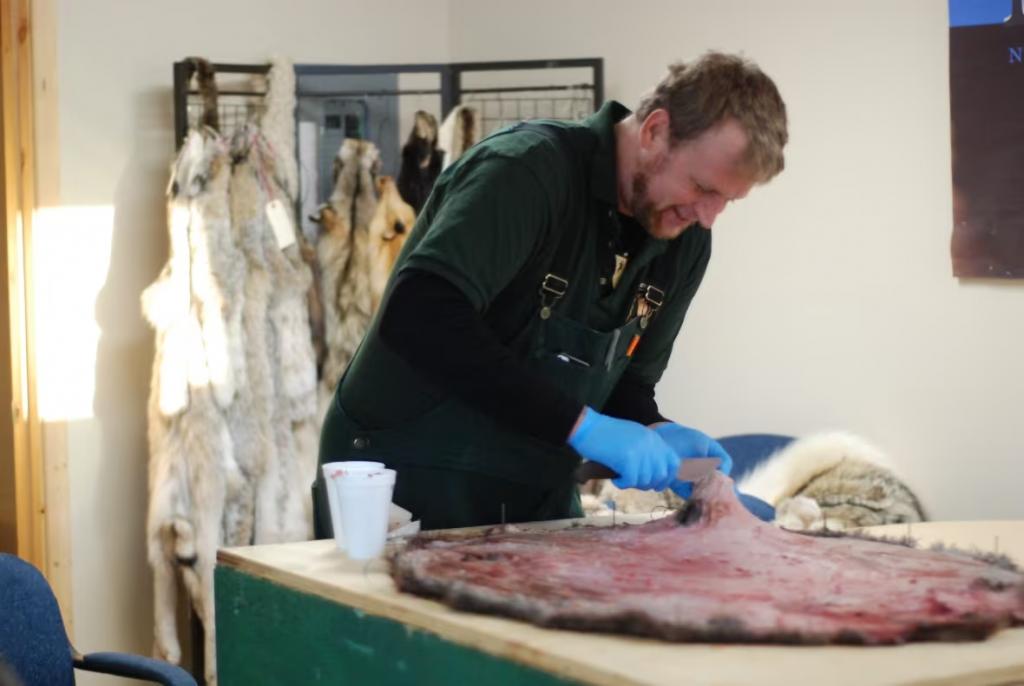Wolverine populations healthy in North despite ‘threatened’ status in U.S.: officials

· CBC News
North American wolverines now officially protected under U.S. Endangered Species Act
Wildlife officials and trappers say the wolverine population in the North remains healthy, despite concerns about the species down south.
The North American wolverine has been officially listed as “threatened” under the U.S. Endangered Species Act. The designation applies only to the lower 48 states, where vast tracts of land, and cold, snowy winters are increasingly rare.
In the North, both trappers and researchers say wolverines still enjoy plenty of both, and their populations are doing fine.
The president of the Yukon Trappers Association, Brian Melanson, says wolverine harvests across the territory have been consistent for more than four decades.
“If the population was unhealthy, you’d see a reduced harvest,” says Melanson. “That would be your first indication that the species was threatened.”
Melanson says that he encourages trappers to get the best price for their furs, and for wolverines, that can mean up to $1,500. He says he also encourages them to support research on wolverines carried out by scientists working with the Yukon government.

For the past 19 years, trappers have handed over roughly half their annual harvest of wolverine to government scientists — 75 carcasses, give or take.
“Wolverines are one of the hardest species to monitor in the boreal forest of the Yukon,” said Tom Jung, a senior wildlife biologist with the Yukon government.
“And because of that, we don’t have as detailed data on them as we would with some other species like caribou or moose, for example.”
Jung says the carcass study focuses on trends, their relationship to changing landscapes and weather patterns, and their overall health. He said all indicators seem to show that wolverines in the Yukon are doing well.
“We’ve been looking at the parasites, some of the diseases that they may have, the fat on their bodies through the winter, even things as obscure as their teeth,” Jung said.
“You know how well wolverines are doing by their teeth — they have a rough and rowdy lifestyle, and maintaining their teeth is critical to maintaining their health.”
Jung says wolverine populations seem to be healthy across the Canadian north, and in Alaska.
Richard Mercredi is a trapper and elder from Fort Smith, N.W.T., and he spends seven months a year in his cabin, about 60 kilometres from the community.
“Around here there appear to be lots of wolverines, everywhere you go,” says Mercredi.
“A friend of mine’s a trapper in Yellowknife, and they catch lots of them around there. And there’s lots on the barrenlands too — when the caribou come in, the wolverine feast on leftovers from the wolves, hunters, or whatever.”
The N.W.T. government does not consider the wolverine to be a species at risk in the territory.
The Committee on the Status of Endangered Wildlife in Canada (COSEWIC) considers the wolverine to be a species of special concern in Canada, largely because of fragmented habitat and harvest pressures in the southern provinces.
Related stories from around the North:
Canada: Warming climate poses challenge to Arctic animals — and those who hunt them, CBC News
Finland: Possible record year for arctic fox in Nordics with 762 cubs counted in 2022, Eye on the Arctic
Greenland: Researchers identify polar bear population that hunts off glacier ice, Eye on the Arctic
Russia: Oral histories unlock impact of climate change on nomadic life in Arctic Russia, says study, Eye on the Arctic
United States: Alaska law officer killed in muskox attack outside his house, The Associated Press




I’m glad the North American wolverine is now an ESA species! We’re glad Northern populations are stable, but we must watch out for their lower 48 challenges. To ensure their existence, habitat protection and research funding are essential. Continue working together to protect these resilient creatures.